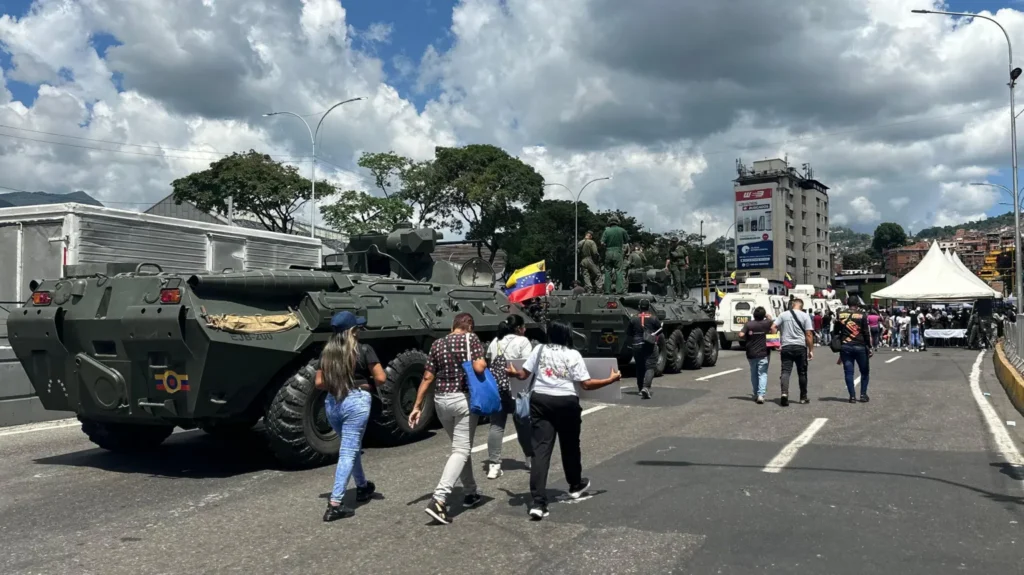Tensions between the United States and Venezuela have escalated sharply following deadly naval operations in the Caribbean. At least 17 people were killed when US Navy forces destroyed three boats it claimed were carrying drugs from Venezuela to the US.
Venezuelan Defense Minister Vladimir Padrino condemned the strikes, calling them part of a “non-declared war.” In response, President Nicolás Maduro has mobilized the National Bolivarian Militia, a volunteer civilian force founded by the late Hugo Chávez in 2009.
The militia, often composed of retirees and older citizens, is now being trained by the Venezuelan Armed Forces to prepare for potential conflict. Training exercises in neighborhoods like Petare and 23 de Enero include lessons on handling Russian-made rifles, tactical drills, and defensive maneuvers. Many of the volunteers, some in their late 60s, have little to no combat experience but express determination to defend their communities.
“Even the cats will come out here to shoot, to defend our fatherland,” said 69-year-old Francisco Ojeda during one drill. Others, like homemaker Yarelis Jaimes, admitted nervousness at handling weapons for the first time but pledged readiness if called upon.
Analysts, however, suggest that Maduro’s real strategy is symbolic rather than military. Political scientist Benigno Alarcón argues that the government aims to use civilians as a “human shield,” raising the potential human cost of any US action.
The US, meanwhile, has intensified pressure on Maduro’s government since Donald Trump’s return to office. Washington has refused to recognize Maduro’s contested 2024 re-election, accused him of ties to drug cartels, and doubled the bounty on his capture to $50 million.
Despite the heightened rhetoric and militia mobilization, daily life outside Maduro’s strongholds continues largely unaffected. Street markets and shops remain open, with many Venezuelans appearing more focused on survival than on the looming threat of war.

